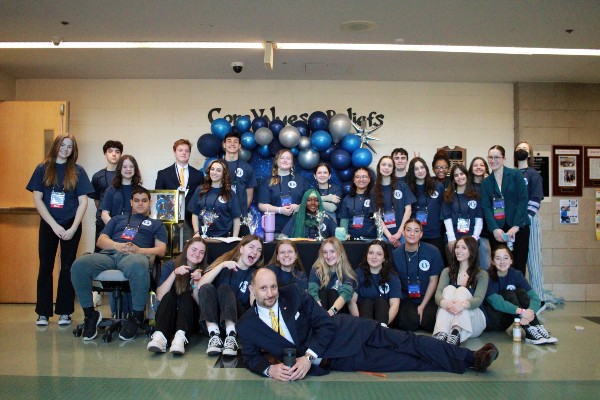 In the month of October, a meeting of senior girls at Woodland was held during advisory to get people thinking about an essential question: Why is it that most of the clothing available for women and girls has become sexualized?
In the month of October, a meeting of senior girls at Woodland was held during advisory to get people thinking about an essential question: Why is it that most of the clothing available for women and girls has become sexualized?
This campaign for awareness was brought about by the club Woodland for Women Worldwide(WWW), a club working towards empowering women around the world.
The issue of inappropriately sexualized Halloween costumes is what first brought this issue into discussion.
Girls in WWW began to question why girls were wearing costumes that looked nothing like the people or things they were supposedly dressed up as. A nurse costume, for example, was nothing like a nurse’s uniform, because it became a “sexy nurse”.
One of the girls asked why the costumes could not just look real. These thoughts started the “Get Real” campaign, to raise awareness about why people wear the clothes that they wear and how those clothes effect the way people are seen.
At the meeting in October, the girls were asked to consider how their style of clothing was influenced, by other people or the media, for example.
The girls were asked to sign a pledge on their way out, which highlighted the importance of wearing clothes that would not make people disrespect a girl.
Though not everyone agreed with WWW’s message wholeheartedly, the majority of girls did sign the pledge, and all of them were discussing it.
“Just that there was so much discussion about the issue made it a success for us,” said WWW co-founders and Woodland teachers Deb Flaherty and Lisa Ollivere.
Flaherty and Ollivere did say that they noticed very few, if any, provocative Halloween costumes at Woodland this year. Though it was not an organized dress-up day due to the week off because of the power-outages, many seniors still dressed up, and there was a shift toward homemade and humorous costumes, rather than the usual store-bought ones.
“I think we all became a little more thoughtful of what we wear, why we wear it, and who might wear it for,” said Ollivere, “and how what we wear affects how other people see us,” she added.
This awareness campaign was not a one-time thing. The pledge the girls signed was not a policy, but a way of asking the senior girls to set an example for the underclassmen, who might dress like them. “They’re setting a new tone for the school,” said Flaherty.
Flaherty and Ollivere hope girls can “Stay Real!”and remember that the clothes girls wear could undermine the image of them that other people have.
It can be said that wearing clothes that might seem inappropriate does not make a girl a bad person, but to people who do not know that girl, the clothes might be all they take note of.



















